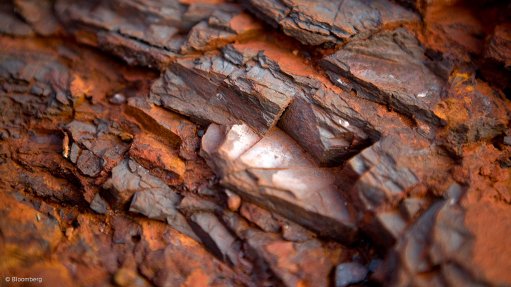
Photo by: Bloomberg
KOLKATA (miningweekly.com) - The Indian Steel Ministry has raised the issue of the erosion of competitiveness of domestic steel producers with the Prime Minister, claiming discrimination against the industry.
In a presentation to Prime Minister Narendra Modi, the Steel Ministry cited discrimination in the allocation of coal assets to steel producers and import duty on critical steelmaking raw materials as hindrances to raw material security for steel companies.
It was pointed out that no coal assets had been allocated to any steel producer since 2008.
Furthermore 44 of the 69 coal blocks allocated to steel companies prior to that had been de-allocated even though end-use plants were completed, while reduction in natural gas supplies had made 10-million tonnes a year of steelmaking capacity uneconomical and unviable, the Ministry said.
Among the measures suggested to ensure higher availability of coking and noncoking coal, specifically to the steel industry, the Ministry sought allocation of coal blocks to such entities as iron-ore miner NMDC Limited, which would serve as a common source of coal supply to several steel producers.
It has also sought the transfer of coking coal assets to the Steel Ministry to achieve better efficiencies in catering to the primary user, the steel industry.
For the last few years, the Steel Ministry had been seeking the control of Bharat Coking Coal Limited (BCCL), a wholly owned subsidiary of Coal India Limited. BCCL, the largest and sole miner-supplier of domestic coking coal to steel producers had an average production of 30-million tonnes a year of coking coal, catering to the domestic steel companies.
The Ministry had also sought the intervention of the Prime Minister’s Office in tackling ‘resource sub-nationalism’, a practice often resorted to by provincial governments.
Several resource-rich provinces framed policies and rules making value addition to natural resources mandatory within the geographical territory of the province and declined raw material linkages to plants located outside the province.
The Ministry claimed restrictive policies in raw material linkages were a disincentive to investors’ choice of plant location, which was based on several other factors such as logistics, transportation and land availability and not just proximity to raw material sources.